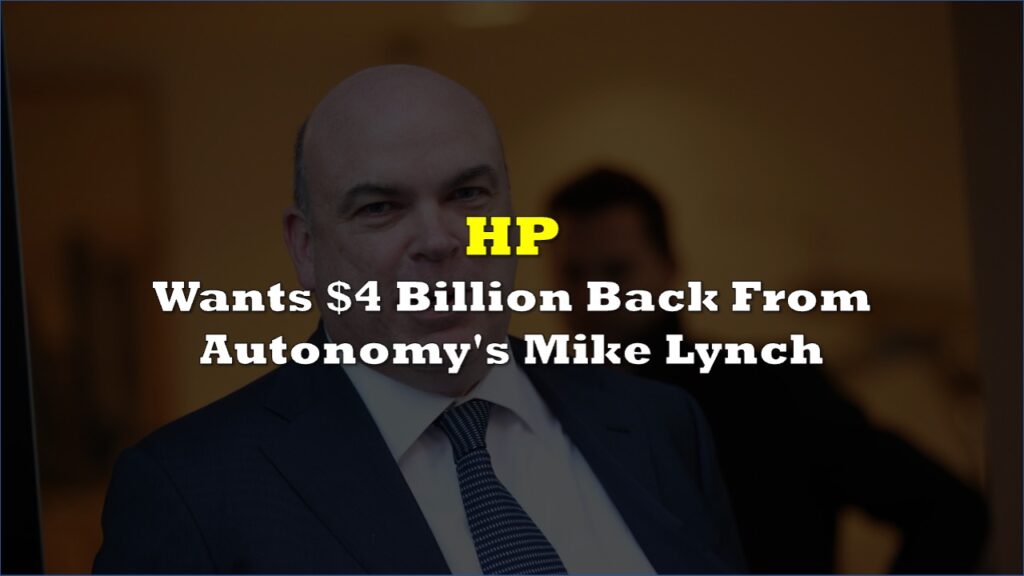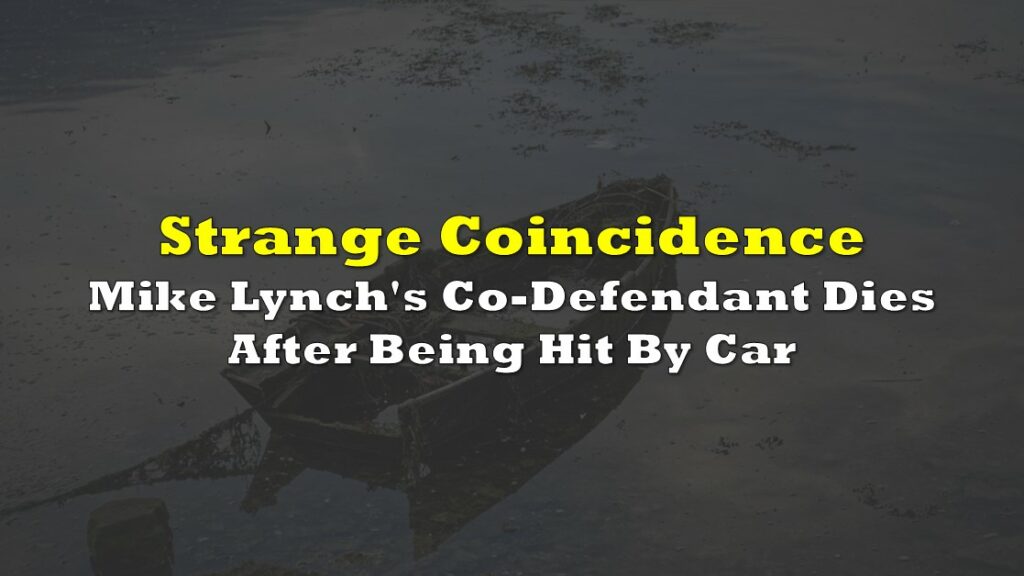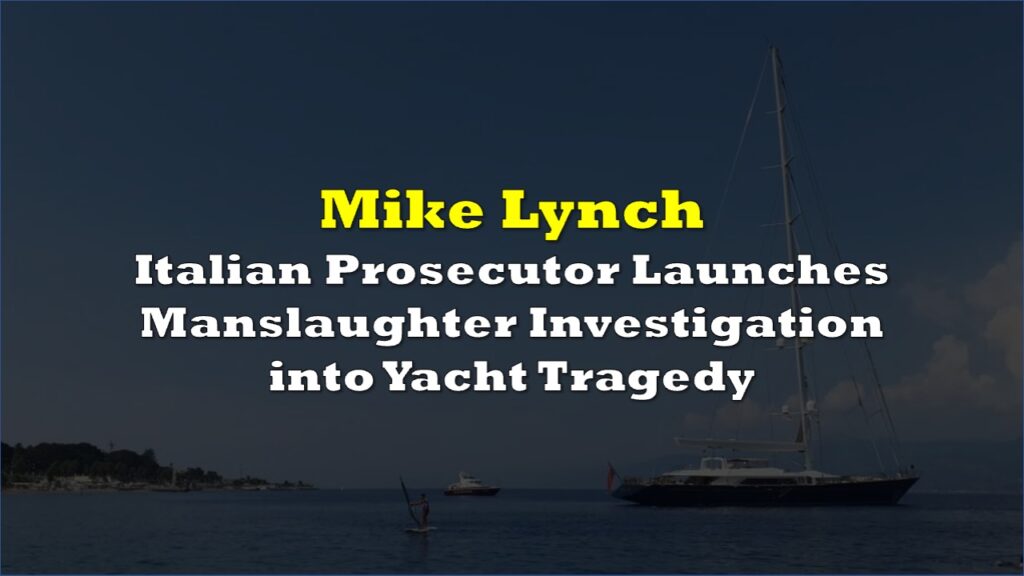Mike Lynch, a name synonymous with the UK’s tech revolution, is among six individuals missing after his luxury yacht, Bayesian, sank off the coast of Sicily early Monday morning. The incident has thrust Lynch, already a figure of intense public scrutiny due to his recent legal battles, back into the spotlight under tragic circumstances.
The 56-meter-long yacht Bayesian, named after the Bayesian inference method central to Lynch’s work in artificial intelligence, was anchored near the Sicilian fishing village of Porticello when it was hit by a fierce storm. The storm, described by Italian coast guard officials as “unexpectedly violent,” capsized the yacht around 4 a.m. local time.
Out of the 22 people aboard, 15 have been rescued, including Lynch’s wife, Angela Bacares. However, Lynch, his daughter Hannah, and four others remain missing.
One of the coast guard officials remarked, “Bad weather was expected, but not of this magnitude,” highlighting the suddenness and severity of the storm. Rescue operations are ongoing, but rough seas have complicated efforts, leading to growing concerns for those still unaccounted for.
Tech titan
Lynch, born in Ilford, East London in 1965, grew up in Essex and showed an early interest in the sciences. After earning a degree in natural sciences from the University of Cambridge, where he specialized in electronics, mathematics, and biology, he pursued a Ph.D. in signal processing and communications.
His academic work laid the groundwork for what would become Autonomy Corporation, the company that catapulted him to fame and fortune. Founded in 1996, Autonomy leveraged Lynch’s research into Bayesian inference—a statistical method that allows computers to recognize patterns in data without needing explicit programming for each task.
This technology was groundbreaking, enabling software to process and make sense of unstructured data like emails, documents, and videos. Autonomy’s software quickly became indispensable to large enterprises, leading to rapid growth and making Lynch one of the UK’s first internet billionaires.
In 2011, Lynch sold Autonomy to Hewlett-Packard (HP) for $11.7 billion, a deal that was initially celebrated as a milestone for the British tech industry. However, the sale would soon turn into one of the most controversial in tech history.
Legal battles
Just a year after the acquisition, HP announced an $8.8 billion writedown on Autonomy, accusing Lynch and his team of inflating the company’s value through fraudulent accounting practices. HP claimed that Lynch had misrepresented Autonomy’s financial health, leading to the disastrous overvaluation. These accusations sparked a series of investigations and legal battles that spanned over a decade.
The UK’s Serious Fraud Office initially investigated but closed the case in 2015, citing insufficient evidence. However, the U.S. Department of Justice pursued the matter more aggressively.
Lynch was extradited to the United States in 2023 to face criminal charges, including wire fraud and conspiracy, which could have led to a prison sentence of up to 25 years.
During the trial in San Francisco, which lasted 11 weeks, Lynch defended himself by arguing that HP’s own mismanagement was to blame for the failed acquisition. He claimed that HP had failed to integrate Autonomy properly and that the allegations against him were a cover-up for their own failures. Lynch’s legal team highlighted that HP executives, including its then-CEO Meg Whitman, were aware of the risks but proceeded with the acquisition regardless.
In June 2024, the jury acquitted Lynch of all 15 felony charges, a surprising outcome that Lynch described as the end of a long and exhausting ordeal.
“It’s bizarre, but now you have a second life—the question is, what do you want to do with it?” Lynch reflected in an interview with The Times shortly after the verdict. This acquittal, however, did not fully clear the shadow of controversy that has long hung over his career.
The Bayesian‘s passengers included several other prominent figures, adding to the tragedy’s notoriety. Among the missing are Jonathan Bloomer, chairman of Morgan Stanley International, and his wife Judy, along with Chris Morvillo, a partner at the law firm Clifford Chance, and his wife Neda. The identity of the sixth missing person has not been confirmed. The rescue operation has been described as complex and dangerous due to ongoing storm conditions in the region.
The tragedy at sea coincides with another blow to Lynch’s inner circle: the recent death of Stephen Chamberlain, the former vice president of finance at Autonomy and a co-defendant in Lynch’s U.S. trial. Chamberlain was killed in a car accident while jogging in Cambridgeshire just days before the yacht disaster. His death, though unrelated, adds a poignant note to the unfolding story of Lynch’s troubled saga.
Information for this briefing was found via The Globe And Mail, CNBC, and the sources mentioned. The author has no securities or affiliations related to this organization. Not a recommendation to buy or sell. Always do additional research and consult a professional before purchasing a security. The author holds no licenses.







